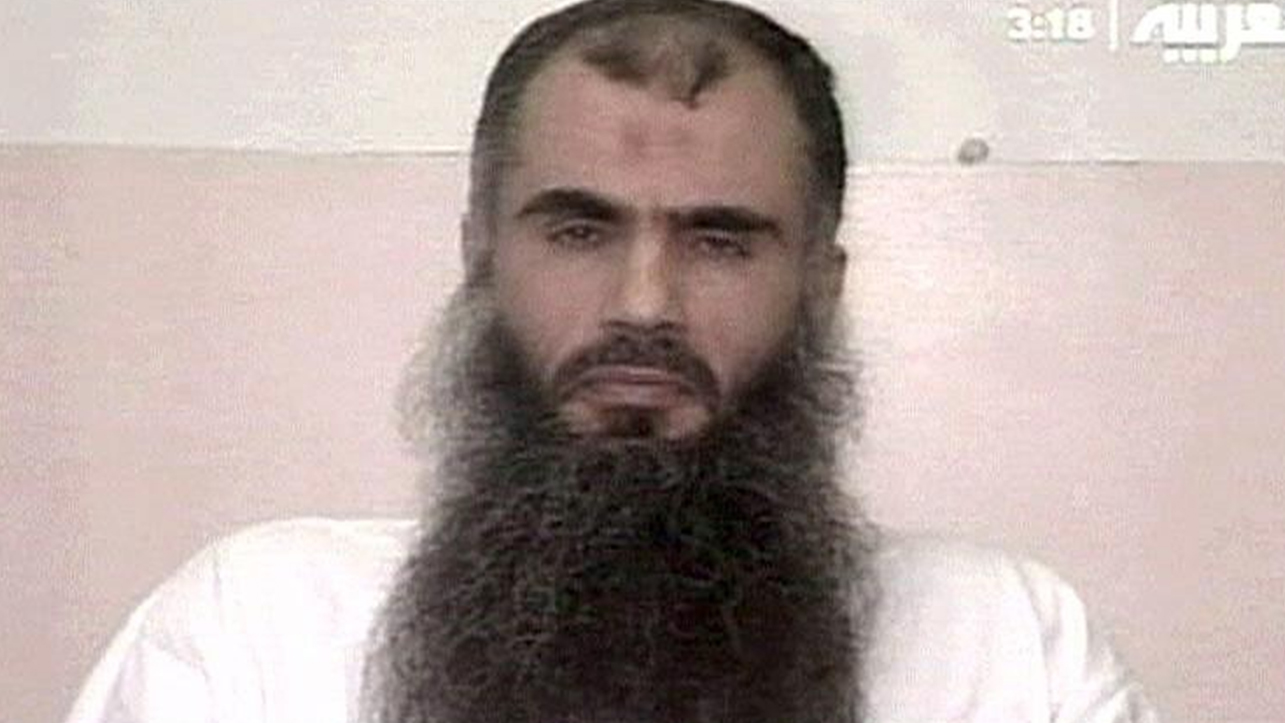The sayings and sermons of Abu Qatada al-Filistini
Abu Qatada is known as a dangerously radical preacher. So what has he actually been saying?

A free daily email with the biggest news stories of the day – and the best features from TheWeek.com
You are now subscribed
Your newsletter sign-up was successful
ABU QATADA has been called the "most significant extremist preacher in the UK", "al-Qaeda's spiritual leader in Europe" and "a truly dangerous individual". News of his upcoming release from jail this week - albeit on stringent bail conditions – has caused outrage, with even his defence team suggesting he poses a "grave risk" to national security.
Why is Abu Qatada being freed and can he ever be deported?
So what does this radical Muslim cleric actually preach? Here are some of the things he has said since 1993 when he came to Britain from Jordan on a forged passport, requesting asylum on the grounds of religious persecution:
The Week
Escape your echo chamber. Get the facts behind the news, plus analysis from multiple perspectives.

Sign up for The Week's Free Newsletters
From our morning news briefing to a weekly Good News Newsletter, get the best of The Week delivered directly to your inbox.
From our morning news briefing to a weekly Good News Newsletter, get the best of The Week delivered directly to your inbox.
1. A 1995 'fatwa' issued by Abu Qatada justified the killing of anyone in Algeria who converted from Islam, including their wives and children.
2. In 1997, according to the Middle East Media Research Institute, Abu Qatada called on Muslims to kill the wives and children of Egyptian police and army officers.
3. In October 1999, according to the British case against him, Abu Qatada made a speech in which, The Guardian reported, "he effectively issued a fatwa authorising the killing of Jews, including Jewish children".
4. In 1999 Abu Qatada told his congregation at Finsbury Park Mosque that Americans should be attacked, wherever they were; that in his view they were no better than Jews; and that there was no difference between English people, Jews and Americans.
A free daily email with the biggest news stories of the day – and the best features from TheWeek.com
5. In a 2001 sermon, shortly after 9/11, Abu Qatada said the al-Qaeda attacks on the US were part of a wider battle between Christendom and Islam, and were a response to America's unjust policies.
6. In autumn 2002, a poem attributed to Abu Qatada, appeared online praising Osama bin Laden and glorifying the attacks.
7. In another sermon he is said to have stated that it was not a sin for a Muslim to kill a non-believer for the sake of Islam.
Abu Qatada is wanted on terrorism charges in the United States, Belgium, Spain, France, Germany, Italy, Algeria and his native Jordan. His comments are often quoted on radical Islamic websites.
-
 Secured vs. unsecured loans: how do they differ and which is better?
Secured vs. unsecured loans: how do they differ and which is better?the explainer They are distinguished by the level of risk and the inclusion of collateral
-
 ‘States that set ambitious climate targets are already feeling the tension’
‘States that set ambitious climate targets are already feeling the tension’Instant Opinion Opinion, comment and editorials of the day
-
 Mixing up mixology: The year ahead in cocktail and bar trends
Mixing up mixology: The year ahead in cocktail and bar trendsthe week recommends It’s hojicha vs. matcha, plus a whole lot more
-
 Epstein files topple law CEO, roil UK government
Epstein files topple law CEO, roil UK governmentSpeed Read Peter Mandelson, Britain’s former ambassador to the US, is caught up in the scandal
-
 Iran and US prepare to meet after skirmishes
Iran and US prepare to meet after skirmishesSpeed Read The incident comes amid heightened tensions in the Middle East
-
 Israel retrieves final hostage’s body from Gaza
Israel retrieves final hostage’s body from GazaSpeed Read The 24-year-old police officer was killed during the initial Hamas attack
-
 China’s Xi targets top general in growing purge
China’s Xi targets top general in growing purgeSpeed Read Zhang Youxia is being investigated over ‘grave violations’ of the law
-
 Panama and Canada are negotiating over a crucial copper mine
Panama and Canada are negotiating over a crucial copper mineIn the Spotlight Panama is set to make a final decision on the mine this summer
-
 Why Greenland’s natural resources are nearly impossible to mine
Why Greenland’s natural resources are nearly impossible to mineThe Explainer The country’s natural landscape makes the task extremely difficult
-
 Iran cuts internet as protests escalate
Iran cuts internet as protests escalateSpeed Reada Government buildings across the country have been set on fire
-
 US nabs ‘shadow’ tanker claimed by Russia
US nabs ‘shadow’ tanker claimed by RussiaSpeed Read The ship was one of two vessels seized by the US military